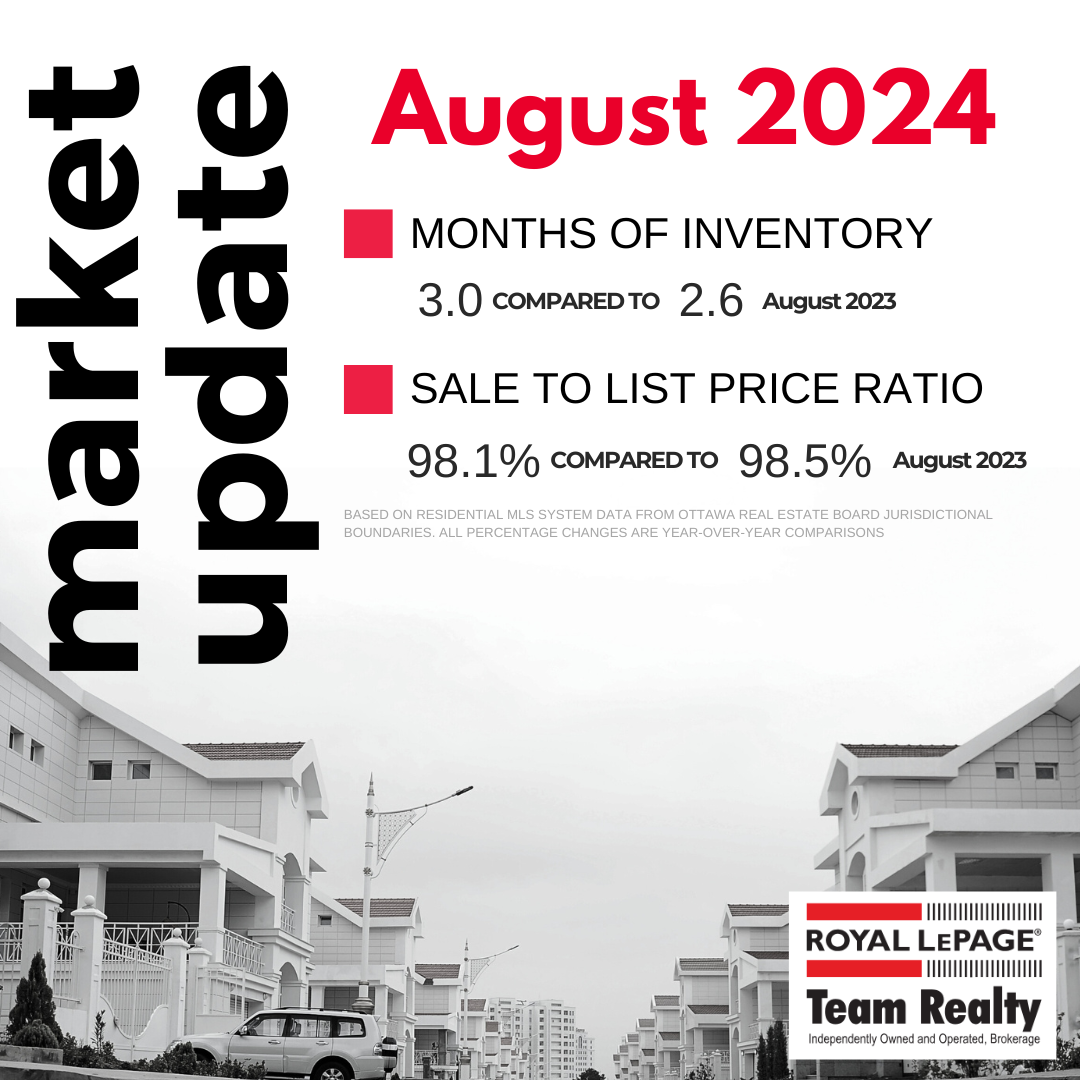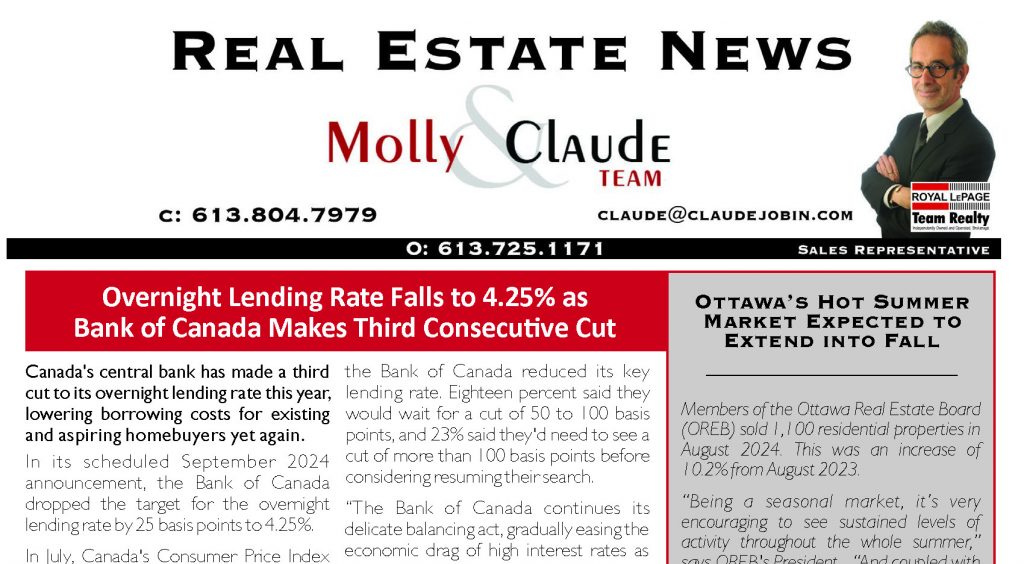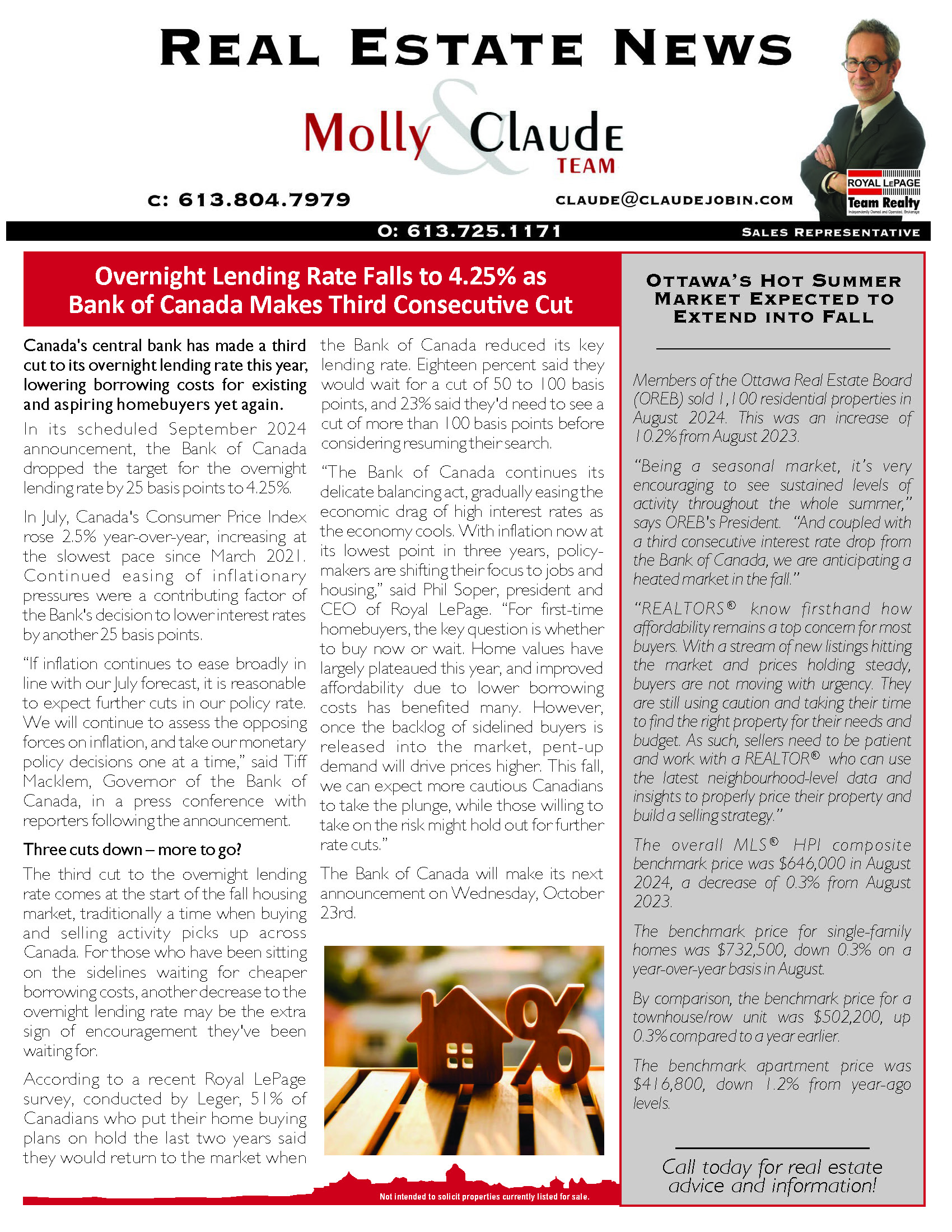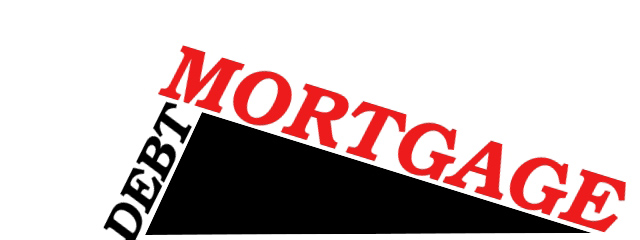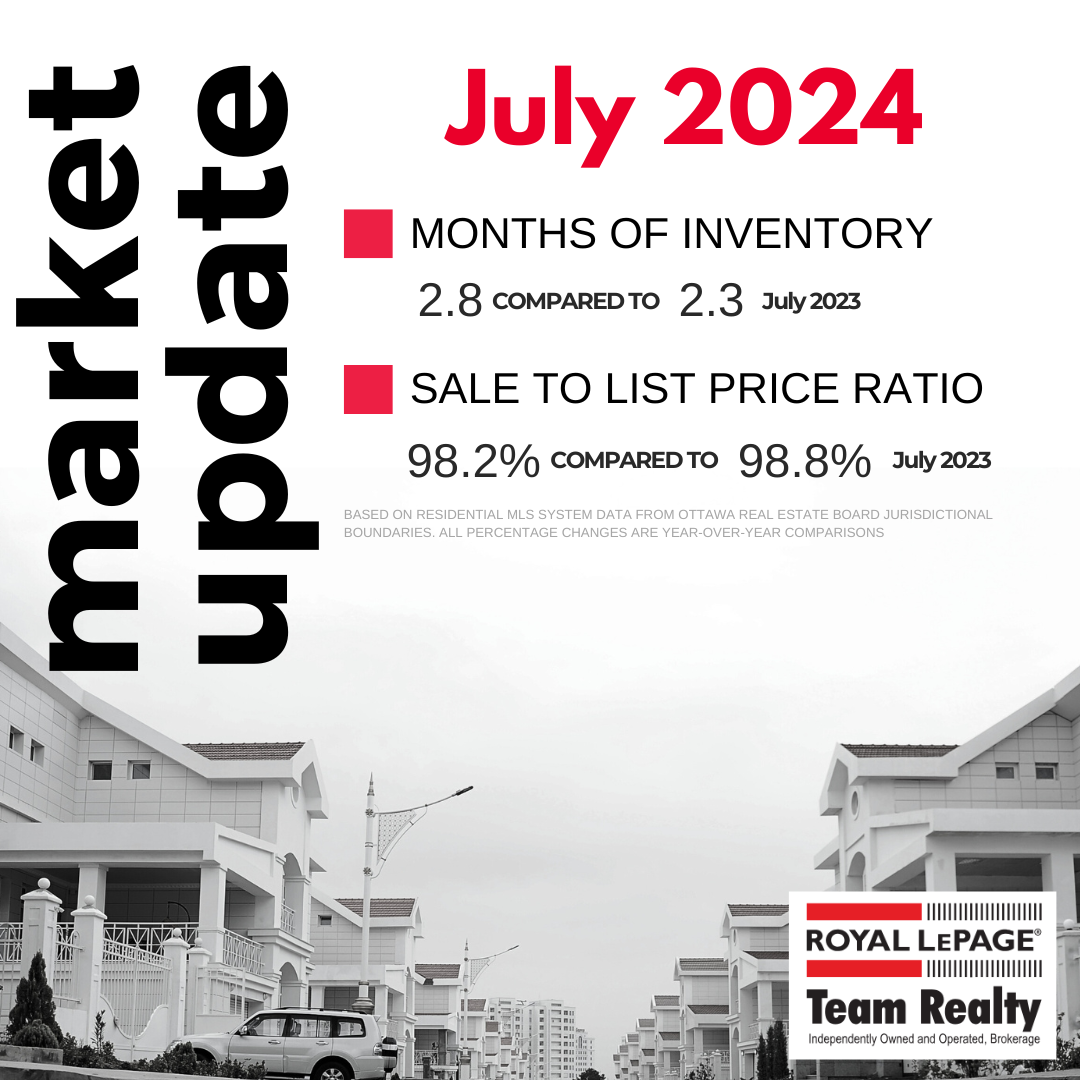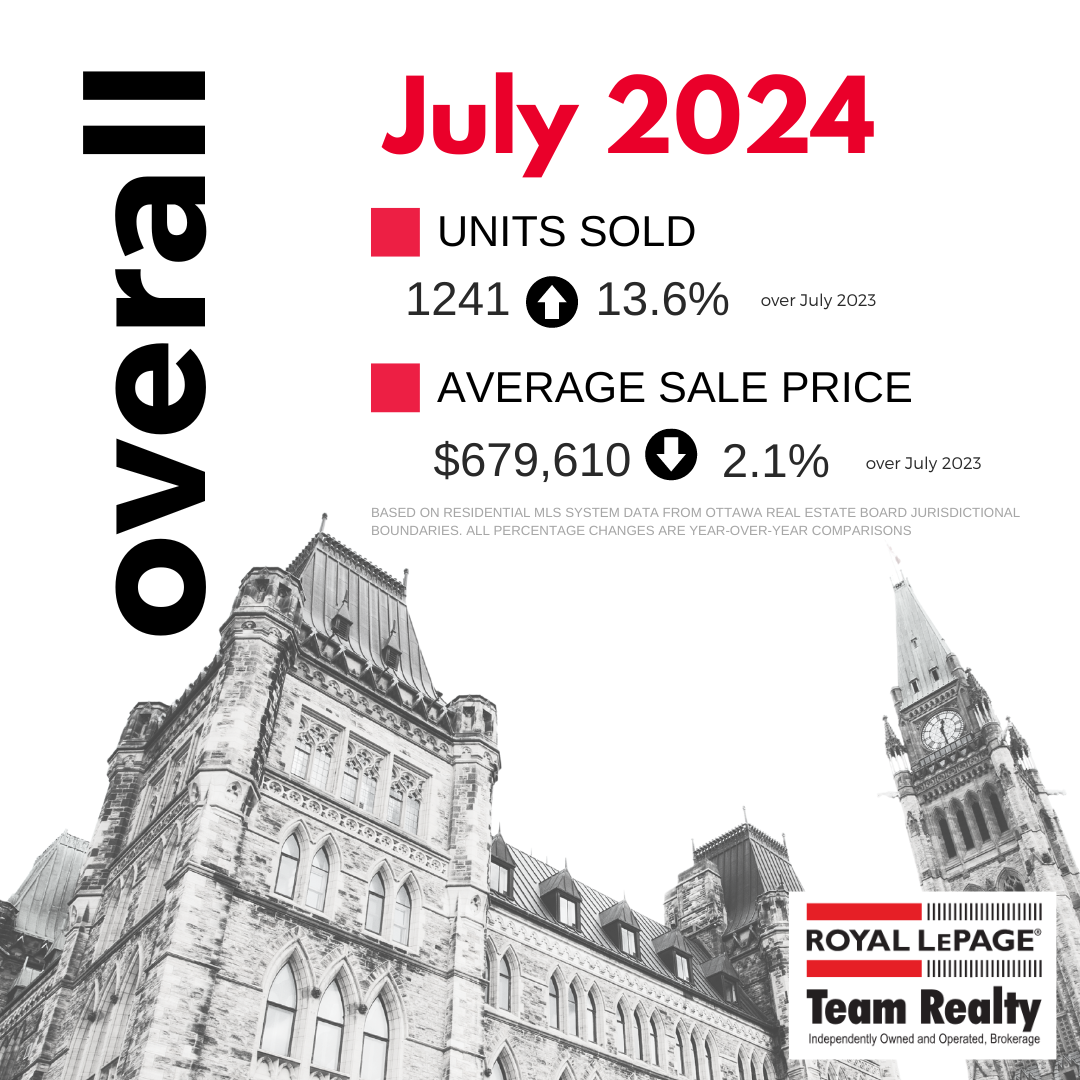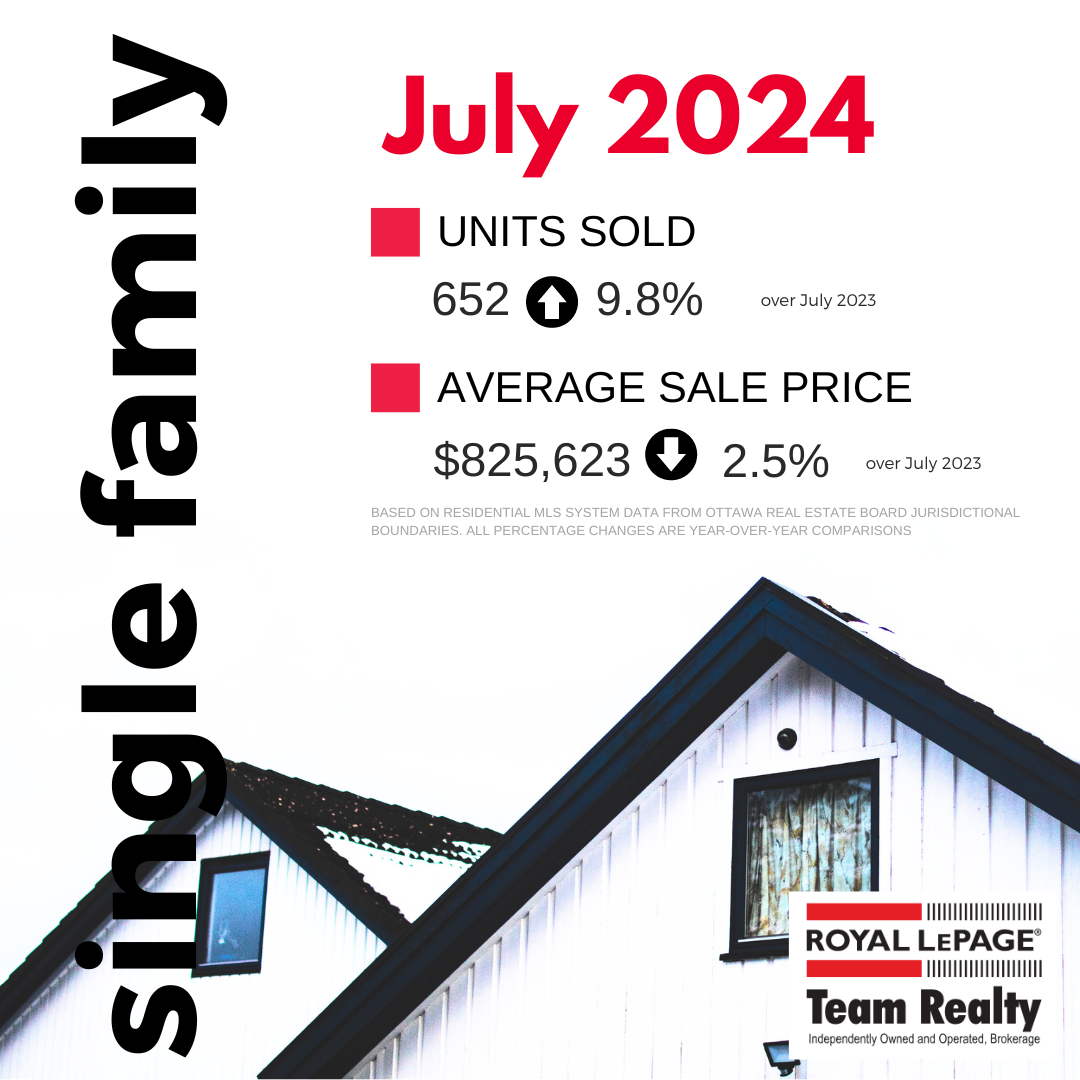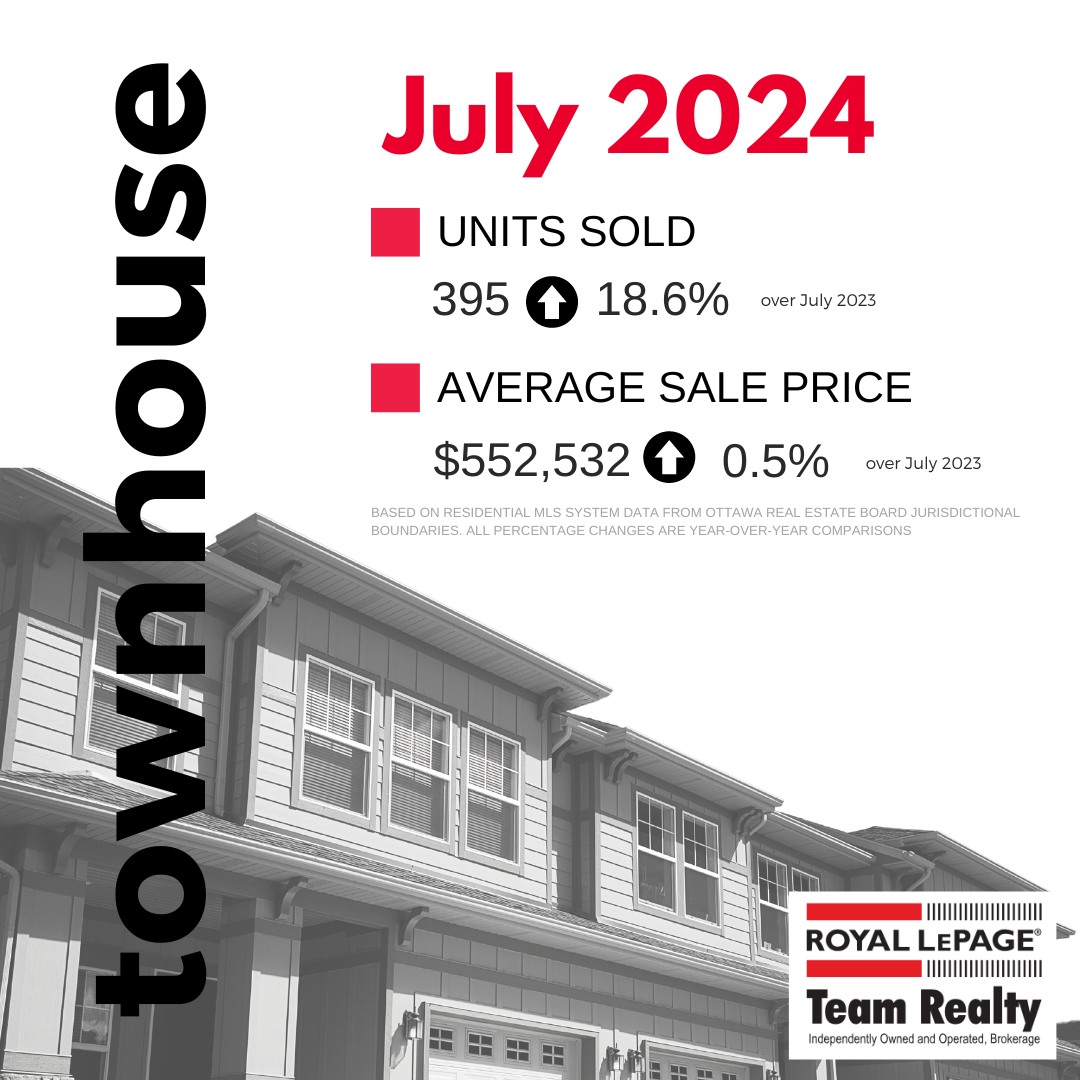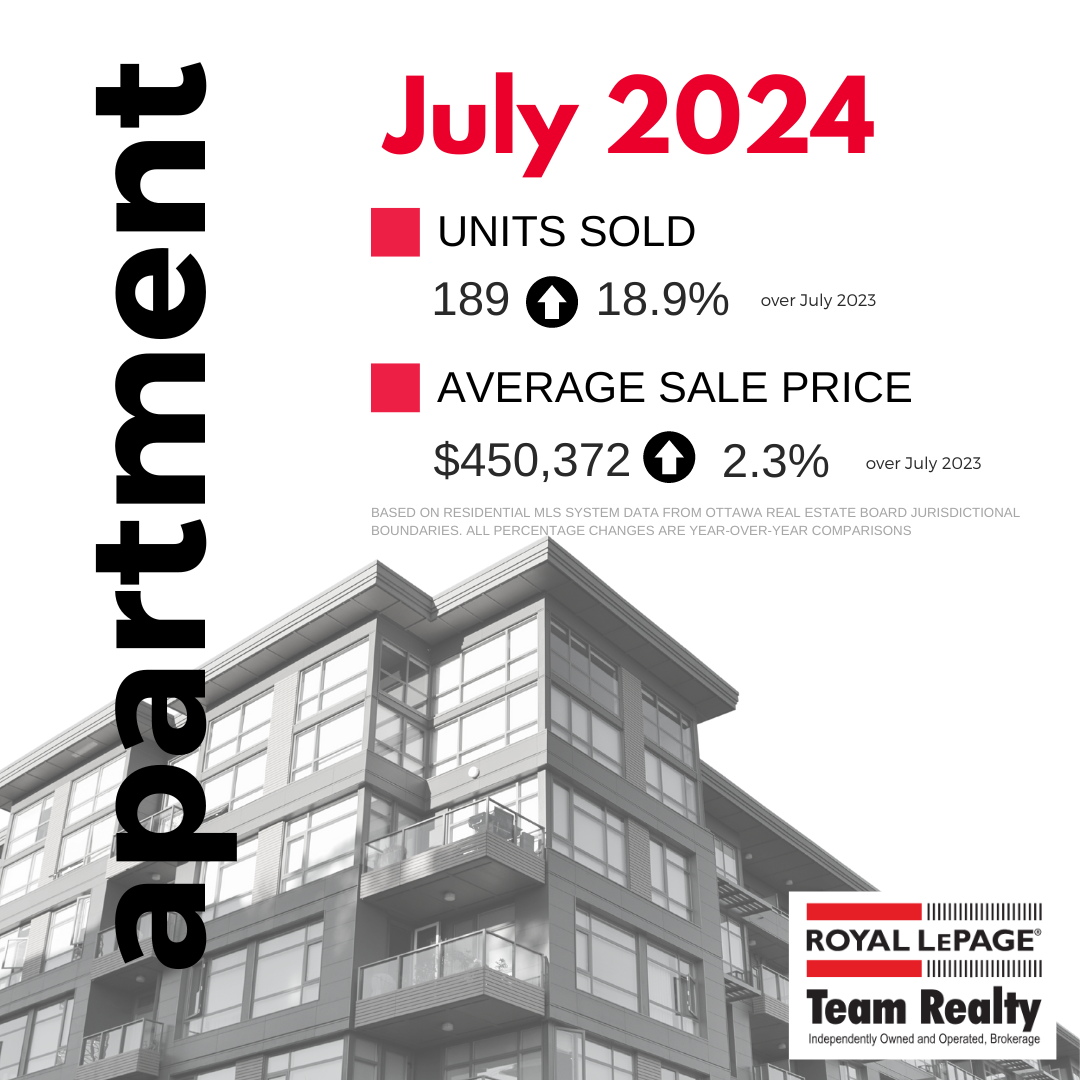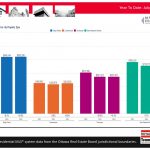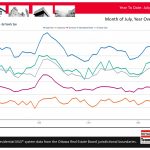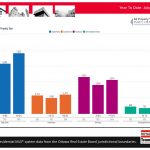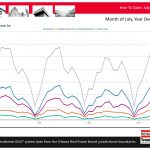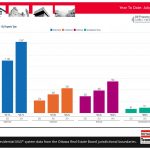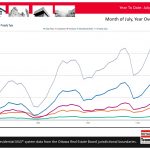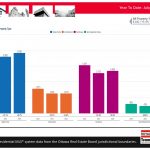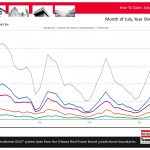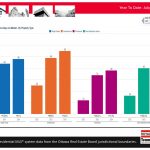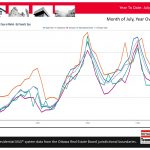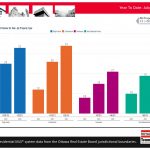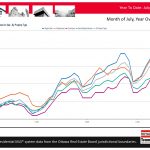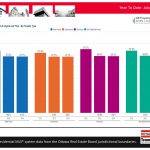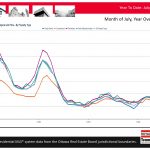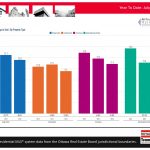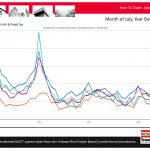
The Canadian Real Estate Association (CREA) has recently released its latest market statistics, and there’s good news for Ottawa realtors and homebuyers alike. **Canadian home sales saw a modest increase of 1.3% in August 2024**, signaling a stable yet cautiously optimistic market environment.
Key Highlights:
- Monthly Sales Increase: The national home sales rose by 1.3% from July to August 2024. This uptick reflects a steady demand for homes across Canada, including Ottawa.
- Inventory Levels: The inventory of homes on a national basis stood at **4.1 months at the end of August**, slightly down from 4.2 months in July. This indicates a balanced market, where neither buyers nor sellers have a distinct advantage.
- Ottawa’s Market Dynamics: Ottawa continues to be a desirable location for homebuyers, with its blend of urban amenities and natural beauty. The city’s real estate market remains competitive, with well-priced homes selling quickly.
What This Means for Ottawa Homebuyers and Sellers:
- For Buyers: The slight increase in sales activity suggests that now is a good time to enter the market. With a balanced inventory, buyers have a fair chance of finding their dream home without facing excessive competition.
- For Sellers: The stable market conditions mean that sellers can expect a reasonable timeframe for their homes to sell. Pricing your home correctly is crucial to attract serious buyers and achieve a successful sale.
Expert Tips for Navigating the Ottawa Real Estate Market:
- Stay Informed: Keep up with the latest market trends and statistics. Understanding the market dynamics can help you make informed decisions whether you’re buying or selling.
- Work with a Local Realtor: A knowledgeable Ottawa realtor can provide valuable insights and guidance tailored to the local market. Their expertise can help you navigate the complexities of buying or selling a home.
- Be Prepared: Whether you’re a buyer or a seller, being prepared is key. For buyers, this means having your financing in order and being ready to act quickly when you find the right property. For sellers, it means ensuring your home is market-ready and priced competitively.
Conclusion:
The latest CREA report offers a positive outlook for the Canadian real estate market, with a slight increase in sales and stable inventory levels. For those in Ottawa, this is an encouraging sign of a balanced and healthy market. Whether you’re looking to buy or sell, staying informed and working with a local expert can help you achieve your real estate goals.

